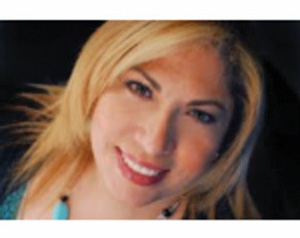
Developmental trauma is a serious condition that hinders children in our society without our knowledge it is even happening. Take for example the case of a bright young 8 year old who was attending a yeshiva in Passaic County six years ago. At that age his IQ was determined to be 175. This young boy was overzealous in learning Torah, learning Gemara, learning Talmud. His excitement was just about learning and participating in all subjects in school and most of all being accepted as a new student. However, on a most terrible day, this 8 year old went from being a truly promising scholar and an advanced contributing member of society to being sheltered, removed, ridiculed and judged for his participation in school. While this 8 year old’s intelligence afforded him the great memory of retaining dates, he was too quick in letting his teacher know that the teacher had made a mistake on a date in history. Instead of the teacher acknowledging the brilliance of the student and the responsibility to truth, this child was instead ostracized and removed from the school for complaining about how the teacher grabbed him, threw him down on the floor and traumatized him in front of his community. The teacher even manhandled the student and told the school it was the student who disrespected him, and the school stood by the teacher, while the young boy of 8 did nothing but raise his hand to tell the truth and correct the date. When his parents complained, all the six siblings were removed from the yeshiva. How could it be possible in this day and age that we could allow this to happen? To stunt the growth of children intellectually? More pervasive is the trauma the young developing brain withstood, and at this point, his brain now at 13 is completely traumatized with a dysregulated amygdala and hippocampus, enveloped in fear, shame and rage.
Q: How can the brain of a young child become traumatized like that?
A: Children’s brains are developing until the age of 25 when the brain is fully matured and done developing. Therefore, the impressions the brain receives before age 25 that are critical in the development of a child can cause trauma and the experience can cause dysregulation and destabilization of the brain.
Q: What can we as parents do to try and help our children form and develop adequately?
A: A child’s experiences must be positive. How parents and adults in their community handle critical situations, issues and conflicts in their presence is crucial. Therefore, the most important lesson for a child is to see conflict resolved, be it parents arguing a point, or an authority figure acting judiciously and fairly for that child. Children can receive lessons through proper ways of discipline, but in this case being thrown out of school is not justified and it is cruel and inhumane, causing trauma to the young child’s brain.
Q: What can cause trauma of the brain?
A: Trauma of the brain can occur in different forms. It can be physical trauma to the brain, to the body, with assault, abuse, neglect and rigidity. Children learn what they live, and the brain responses become more aggressive, more relentless, more fearful because now the brain is responding in fear of the stressful situation taking into consideration the terrible experience it had in the past.
Q: Can trauma be hereditary?
A: Yes, trauma gets recorded into our genetic composition and it is passed from one generation to another. The important lesson is how we react to trauma, and what kinds of resolutions we have that help us deal with everyday issues.
Q: How can psychotherapy help?
A: Psychotherapy allows for us to treat the brain from repeating and reliving the trauma and rigidity that was created. To allow the child to discover a positive caring environment where he sees how to resolve issues, and where they can now self-regulate their brain rhythms in the realms of the physical, emotional, cognitive and behavioral all towards stability.
By Darsi D. Beauchamp, PhD
Dr. Beauchamp works at the Neuro-Psychology Practice, in Iselin, Morristown and NYC, a comprehensive and preventive center and is a psychotherapist who uses hypnotherapy, CBT/DBT, biodfeedback and neurofeedback for children and adults in her practice. For more information, you can contact her at 973-400-9794. Insurance is accepted.








